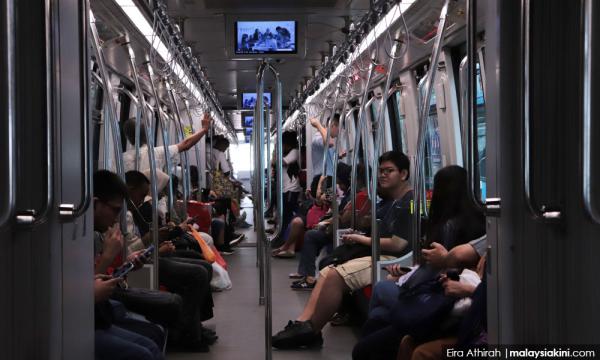LETTER | In order for Malaysia to become a smart city, smart mobility is the key and this requires the country to improve more on its transportation system with less emission and adopting frontier technologies.
Smart mobility is advantageous in that it can provide a healthier lifestyle. A study done in Copenhagen shows that public transportation that features smart mobility can provide a lower mortality rate, a happier disposition and increase the productivity at work.
Smart mobility in public transportation can also reduce road congestion and pollution. In the US, it has already reduced 865,000,000 hours of travel time which causes a depletion of 450,000,000 gallons of gas being burned.
In Malaysia, one big constraint to smart mobility is accessibility. It is crucial as transportation facilitates daily activities such as access to jobs, schools and any public facilities.
Most walkways in Malaysia are also difficult to access, not in a good condition to walk in several areas and far away from the neighbourhood area. It is also inconvenient for people who have limited access to shuttle buses or any public transport.
Also, urban low-income residents in Kuala Lumpur have difficulty in accessing public transportation because of its location which is far away from any mobility hubs.
Moreover, the quality of services in our public transportation system is also an issue because of the poor management by the city councils and transit authorities. There is a lot of complaints on ticketing, the punctuality and the efficiency of services. Most users have to wait for so long to get to their destination and the arrival time is usually delayed.
The country’s Transport Minister Anthony Loke Siew Fook mentioned that there is no point of having big projects, spend billions of ringgit to update the tracks and station if the services to the public are not good.
Some LRT stations also have limited parking spaces which result in commuters finding it difficult to drive towards the nearest LRT station.
Hence, to realise the objective of smart mobility, there is a crucial need to improve accessibility to public transportation, integrated mobility, the management of traffic and mitigation of its congestion, and great technologies in parking.
This will then become a turning point in the government’s initiative towards Smart City.
But because the status of our public transportation system is still problematic, most Malaysians still prefer to drive their own cars, adding to the problem of traffic congestion. Therefore, the government needs to discourage the usage of cars while upgrading our public transportation system to encourage Malaysians on making the right choice.
As Malaysia is in the middle of entering the Fourth Industrial Revolution (4IR), the government should blend in the power of Internet of Things (IoT) to mitigate the transportation problem on par with the desire of Malaysia to become a smart city.
This can be achieved via the concept of connected transportation wherein vehicles are equipped with wi-fi or any Internet connection while travelling on the road. The concept of connected transportation implies routes can be optimised and traffic congestion can be reduced. The data gathered through IoT devices also can be analysed by experts for decision-making.
With the aid of IoT, the transportation authority can analyse the amount of data through sources such as ticketing and vehicle sensors in order to set up a plan on improving the services and spreading information to the users. The traffic safety can also be analysed by tracking the traffic, the speed and weather conditions.
In Singapore, its Land Transport Authority has been developing their Open Data and Analytics for Urban Transportation Project on accessing the real-time data such as traffic conditions to assist the users on decision-making and the navigation of their surroundings.
Smart parking solutions is also a good initiative as the technology includes the right infrastructure, security cameras, sensors and internet connection so that people would not be having any parking issue, especially in the urban areas.
With IoT, the data on available parking can be shared through mobile apps, social media or websites. Traffic congestion can also be reduced as the system can notify the users on the available parking while giving the right decision to them.
The development of autonomous vehicles has also gained public interest because of their safety, energy consumption and more systematic parking.
Artificial Intelligence (AI) is considered as the main ingredient for the development because of its capability of collecting, analysing data, adapting to situations and learning through machine learning.
In Singapore, Astar’s Institute for Infocomm Research has developed a self-driving vehicle and was approved for public road testing at One-North in July 2015.
Malaysia has a variety of public transportation which includes e-hailing, buses, trains, pedicabs, taxis and ferries and good progress has been made over the last decade by the government to improve the transportation focusing on the public transportation. It also has well-developed transport networks and systematic rail links.
In fact, public transportation covers around 75 percent of urban areas and it is beneficial for smart cities development in Malaysia. Perhaps what is missing is the smart mobility aspect of the transportation system and network.
In conclusion, smart mobility is important because it is considered as the first step to becoming a smart city. However, the government and the citizens themselves should play their part in realising the initiative.
Farhan Kamarulzaman is research assistant at Emir Research.
The views expressed here are those of the author/contributor and do not necessarily represent the views of Malaysiakini.


